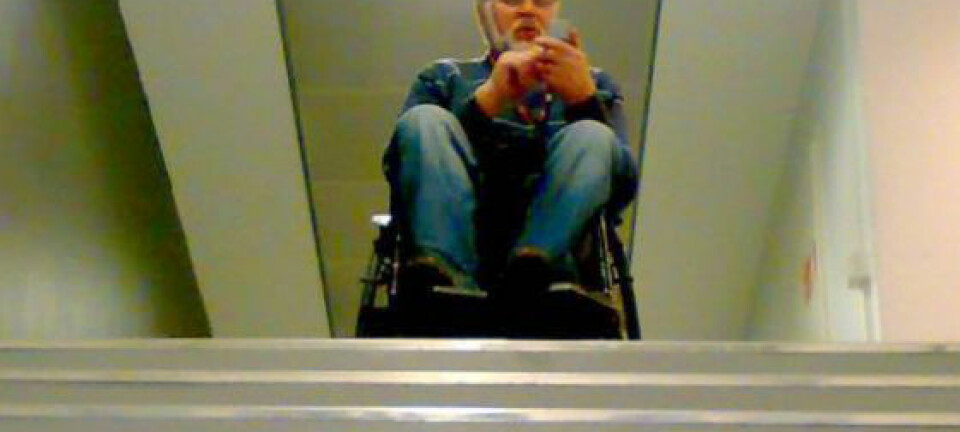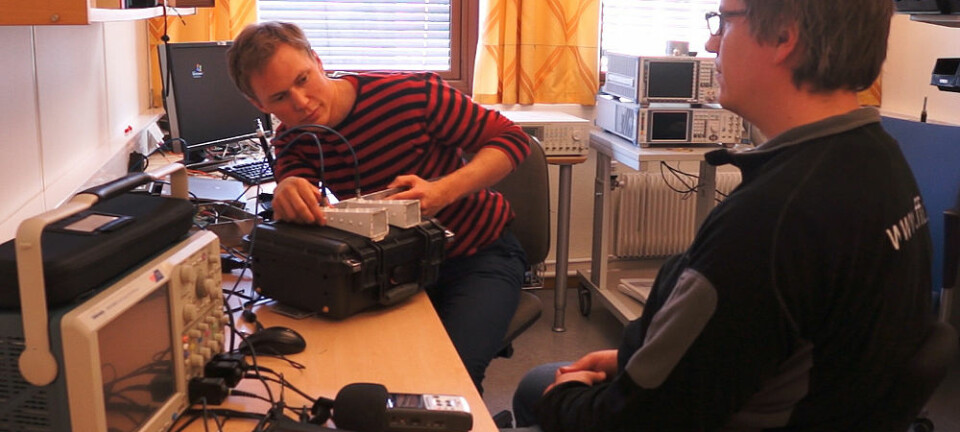
Trust makes our hearts beat as one
People who trust each other often find their hearts beat in step with one another when collaborating on a task. Scientists are puzzled by the phenomenon.
Throughout human evolution, cooperation has always been a vital ingredient in our species' survival. When we work together, we can solve bigger and more complex tasks.
This applies to everything from chasing and catching prey, to building a new house.
A new study, published in the Journal of Physiology and Behavior, finds that when two people work together on a task--and trust each other--their hearts begin to beat in sync. The scientists behind the study are perplexed by the results.
"It's really interesting. This is the first time that anyone has shown that trust between two people can be seen in heart rhythms and we have no idea why it happens,” says co-author Panagiotis Mitkidis, assistant professor at the Centre for Interacting Minds at Aarhus University, Denmark.
Previous studies have shown that when two people like each other, they can imitate each other's body language and tone of voice.
“Perhaps this imitation also occurs in the autonomic nervous system that controls the pace of our heartbeat. But how this happens is impossible to say," says Mitkidis.
Trust exercises make hearts beat in sync
In the study, randomly selected college students were teamed up into 37 couples and each pair was then tasked with building LEGO cars. They repeated the exercise four times.
Each game lasted 10 minutes and meanwhile, the scientists measured the students' heartbeat. Then they got 20 other pairs of students to follow the same procedure but with the modification that the pair had to play a 'trust game', a so-called Public Goods Game (PGG) after each LEGO session.
In the PGG, each person was given a sum of money. They were asked to either invest the money in a common purse for the whole group or to keep it to themselves. The decision to invest or not was confidential and at the end of the game the money was split between the players.
The game tests the levels of confidence between the members of the group. If only one person invested they lost their money to the other non-investors. So only those who are confident in others investing into the common pool are likely to invest themselves.
The results showed that the group of couples who invested their money in the prize pool also shared a synchronised heartbeat during the LEGO exercise for at least 85 per cent of the time that they were playing. What’s more, their heartbeat increased during the tests.
The group who did not invest during the PGG also had a synchronized heartbeat during the LEGO exercise, but it was much less, only 67 per cent of the time, and their heart rate did not increase significantly.
"It is very mysterious and we can’t really explain it"
According to Mitkidis, the increased heartbeat during PGG suggests that more trusting cooperation creates excitement between the participants.
"The increased pulse during the PGG may reflect the fact that trustful relationships creates an emotional excitement among the participants,” says Mitkidis.
“It is difficult to say why the heart rate rises synchronously. One explanation could be that the heartbeat increase reflects the risk involved with trusting another person. This opens up the possibility that the other person can misuse this trust, which creates an increased awareness and excitement as the heart rate rises," he says.
One thing that can be ruled out is the possibility that the participants responded to physical touch from their partner.
"It must be something that we can see or hear in each other that causes the hearts to become synchronised, because during the trial the pairs had no physical contact. It’s very strange that this happens, and we have difficulty explaining it."
We imitate each other
The study reveals an exciting aspect about human nature but it is hard to say anything conclusive about the phenomenon from this study alone, says Professor Albert Gjedde from the Department of Neuroscience and Pharmacology at the University of Copenhagen, Denmark.
"There are many possible explanations. The increased heart rate can be explained by the fact that you have an expectation of joint success and it causes the brain to secrete dopamine, which increases the level of excitement and the heart rate," says Gjedde, who was not involved in the study.
When people spend a lot of time together they begin to imitate each other and think the same way, which could be an explanation for the results, suggests Gjedde.
"We take in impressions from the people we spend time with and so our behaviour becomes coordinated. This is why good friends or an old married couple can often finish each other's sentences,” says Gjedde.
“There is a kind of cognitive synchronisation where thinking and reaction patterns are similar, and it may well be reflected in the autonomic nervous system, which, amongst other things, controls the heart. But the participants of this experiment only spent a short time together so it's hard to say whether this can explain the phenomena here" he says.
---------------
Read the Danish version of this article on Videnskab.dk
Translated by: Catherine Jex








